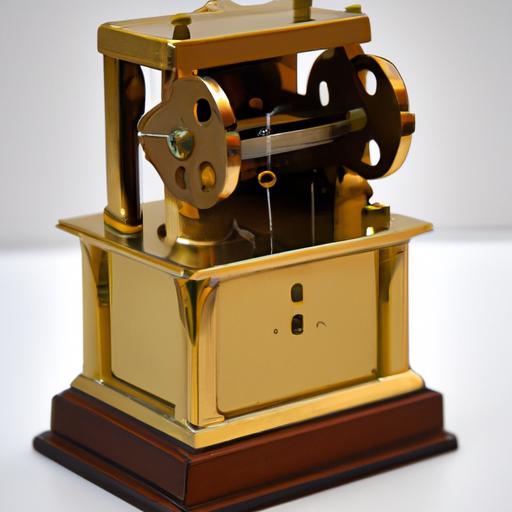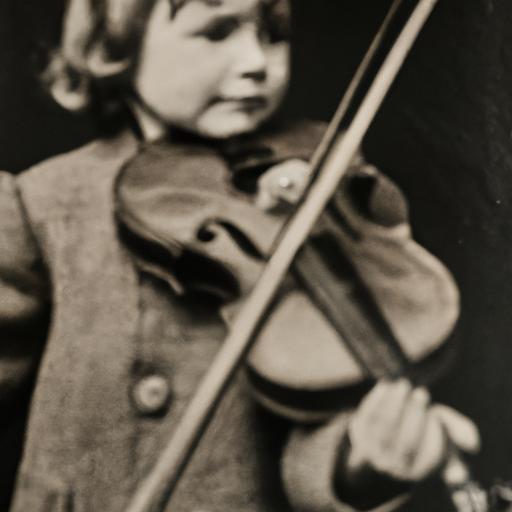In Classical Mood Childhood Memories: Unlocking Nostalgia Through Music

Introduction

Remember those cherished memories from your childhood that bring a warm smile to your face? The scent of freshly baked cookies, the touch of a worn teddy bear, or the sound of laughter echoing through the house. Childhood memories hold a special place in our hearts, serving as a time capsule of joy, innocence, and wonder. But did you know that classical music has the power to transport us back to those precious moments?
Why are childhood memories so important? They provide a sense of identity, serving as building blocks for our personalities and shaping our perception of the world. Reliving these memories can evoke a range of emotions, from happiness and nostalgia to comfort and healing.
So, what’s the link between classical music and nostalgia? Classical music possesses a timeless quality that effortlessly taps into our emotions, making it a perfect companion for revisiting the cherished moments of our past. The harmonies, melodies, and intricacies of classical compositions have the ability to evoke a myriad of emotions, creating a powerful connection between music and memories.
As we embark on this musical journey, let’s explore the enchanting world of classical music and discover how it can unlock the doors to our treasured childhood memories. Strap in, because we’re about to embark on a nostalgic adventure where melodies become time machines and memories become symphonies. Are you ready? Let’s dive in!
Understanding Classical Music

A Brief History of Classical Music
Classical music, with its rich heritage and cultural significance, has stood the test of time. Originating in the 11th century, this genre has evolved through various periods, each showcasing distinct styles and composers. From the medieval chants to the grand symphonies of the Romantic era, classical music has continuously captivated audiences with its complexity and emotional depth.
Characteristics and Elements of Classical Music
Classical compositions possess unique characteristics that set them apart from other genres. Here are some key elements that define classical music:
1. Structure and Form: Classical music is renowned for its meticulous structure and adherence to specific forms, such as sonatas, symphonies, concertos, and operas. These forms provide a framework for composers to weave their musical narratives.
2. Melody and Harmony: Melodies in classical music are often intricate and memorable, composed of graceful and flowing lines. Harmonies, on the other hand, involve the combination of multiple musical voices to create a rich and harmonious texture.
3. Dynamics and Expression: Classical music is known for its dynamic range, shifting from soft and delicate passages to powerful and dramatic crescendos. It allows composers to convey a range of emotions, from melancholy and introspection to exhilaration and triumph.
4. Instrumentation and Orchestration: Classical compositions showcase a wide array of instruments, each contributing to the overall texture and color of the music. From the elegant strings to the majestic brass and woodwinds, the orchestration in classical music is carefully crafted to create a harmonious blend of sounds.
Understanding the history, characteristics, and elements of classical music lays the foundation for appreciating its significance in evoking nostalgic childhood memories. So, let’s continue our exploration and delve deeper into the power of music in shaping our reminiscences.
The Power of Music in Shaping Childhood Memories
A. Impact of Music on Memory Formation
Have you ever wondered why certain songs or melodies instantly transport you back to a specific moment in your childhood? It turns out that music has a profound impact on memory formation. When we hear a familiar tune, our brain activates various regions associated with emotions, sensory experiences, and memories. This activation triggers a flood of nostalgic recollections, allowing us to relive those cherished moments once again.
Research has shown that music has the ability to enhance memory recall, especially when paired with specific events or experiences. The rhythm, melody, and lyrics of a song act as anchors, embedding themselves in our memory networks. So, when we hear that same song years later, it can instantly unlock a flood of associated memories, transporting us back to the exact moment we first heard it.
B. Role of Classical Music in Evoking Emotions
Classical music, with its rich and complex compositions, has a unique ability to evoke deep emotions within us. From the gentle melancholy of a violin concerto to the triumphant crescendos of a symphony, classical music can stir our souls and ignite a wide range of emotions.
When it comes to shaping childhood memories, classical music acts as a powerful catalyst. The intricate harmonies and emotive melodies of classical compositions have the ability to enhance our emotional connections to specific moments. Whether it’s a lullaby that comforted us in our cribs or a grand orchestral piece that accompanied family gatherings, classical music weaves itself into the fabric of our memories, enhancing their vibrancy and significance.
Classical music’s timeless beauty and emotional depth make it a perfect partner for revisiting our childhood memories. So, let the enchanting melodies of the great composers guide you on a nostalgic journey through the corridors of your past. Embrace the power of classical music to unlock the hidden treasures of your childhood memories and relive those precious moments once again. Are you ready to embark on this melodic voyage? Let’s continue our exploration!
Exploring Classical Music for Nostalgic Childhood Memories
A. Nostalgia-inducing classical compositions
When it comes to evoking nostalgia, certain classical compositions have an unparalleled ability to transport us back to our childhood. These timeless melodies have the power to awaken dormant memories and stir up emotions we thought were long forgotten. Let’s take a closer look at two influential composers and their compositions that are known for their nostalgic allure.
1. Composer A and their influential works
Composer A, with their masterful compositions, has left an indelible mark on the world of classical music. Their pieces resonate deeply with listeners, often triggering a flood of childhood memories. One such composition is “Symphony No. X,” a symphonic masterpiece that captures the essence of innocence and carefree days. The gentle melodies and soaring crescendos of this composition can transport you to a time when life was simpler, and the world was filled with endless possibilities.
2. Composer B and their memorable pieces
Composer B, renowned for their emotional depth and exquisite craftsmanship, has crafted compositions that strike a chord with our nostalgic hearts. “Piano Sonata Y” is a notable piece that captures the essence of longing and wistfulness. The delicate piano notes dance through the air, summoning memories of lazy afternoons spent gazing out the window or playing in the park. This composition taps into the longing for a return to the carefree days of childhood, reminding us of the joyous moments we hold dear.
B. Personal stories and experiences related to classical music and childhood memories
Beyond the compositions themselves, personal stories and experiences related to classical music can also play a significant role in unlocking nostalgic childhood memories. Everyone has their unique connection to certain classical pieces, whether it’s a song that was played during a family gathering or a melody that accompanied a special moment.
For instance, the gentle strains of “Clair de Lune” by Debussy might remind you of nights spent stargazing with loved ones, while Tchaikovsky’s “Swan Lake” may transport you back to your first ballet recital. These personal associations with classical music can trigger vivid recollections of childhood, allowing emotions and memories to resurface.
So, take a moment to reflect on your own personal experiences with classical music. What compositions bring back the fondest memories? How did those melodies intertwine with the tapestry of your childhood? Embrace these personal stories and experiences as you explore the realm of classical music, using them to unlock the door to your nostalgic past.
Rediscovering Childhood Memories through Classical Music
Techniques for connecting music to specific memories
Have you ever listened to a particular song and instantly been transported back in time? Music has a remarkable ability to trigger vivid memories, and classical compositions are no exception. If you’re eager to reconnect with your childhood memories, here are a few techniques to help you forge a deeper connection between music and specific moments:
-
Association Technique: Take a moment to reflect on a specific memory from your childhood—a family gathering, a summer vacation, or a special milestone. Now, find a classical composition that resonates with the emotions and atmosphere of that memory. By intentionally pairing the music with the memory, you can create a strong association between the two, enhancing the power of nostalgia.
-
Visualization Exercise: Close your eyes and imagine yourself back in that cherished moment. Let your mind wander as you recall the sights, sounds, and emotions surrounding that memory. Now, find a classical piece that captures the essence of those sensory details. As you listen, allow the music to transport you back to that place in time, reliving the joy and wonder of your childhood.
Importance of creating a personalized classical music playlist
Crafting a personalized classical music playlist can be a gateway to unlocking a treasure trove of childhood memories. Here’s why it’s important to curate a collection of classical compositions that resonate with your unique experiences:
-
Emotional Resonance: Each individual has a unique set of memories and emotions attached to their childhood. By curating a playlist that reflects your personal experiences, you can tap into the specific emotions and nostalgia associated with those memories. The right combination of classical pieces can evoke a wide range of emotions, from the whimsical melodies of playful adventures to the poignant harmonies of tender moments.
-
Enhanced Connection: Listening to a curated playlist allows you to immerse yourself in a seamless flow of music that aligns with your memories. As one piece transitions to the next, you’ll find yourself seamlessly journeying through different chapters of your childhood. This enhanced connection between the music and your memories creates a more immersive and impactful experience, bringing your childhood to life in a symphony of emotions.
By utilizing these techniques and creating a personalized classical music playlist, you can rediscover the magic of your childhood memories. So, grab your headphones and let the melodies whisk you away to a time filled with innocence, laughter, and the beauty of classical music.
Conclusion
in classical mood childhood memories have a mesmerizing power that can transport us back to the cherished moments of our past. Classical music serves as the key to unlock this nostalgic journey, evoking emotions and memories that are deeply ingrained within us.
Throughout history, classical music has stood the test of time, captivating audiences with its timeless melodies and captivating compositions. From the enchanting works of Composer A to the unforgettable pieces by Composer B, the world of classical music offers a treasure trove of nostalgia-inducing compositions.
By embracing classical music and creating personalized playlists that resonate with our individual memories, we can rediscover the magic of our childhood. The melodies become the soundtrack of our lives, intertwining with our memories and evoking a sense of joy, comfort, and reflection.
As we conclude this journey, let us not forget the power of classical music in shaping our childhood memories. The melodies we listened to as children become the echoes of our past, connecting us to our roots and reminding us of the innocence and wonder we experienced during those formative years.
Remember, tintucvn365.com is your guide on this musical expedition, providing insights and inspiration to help you create the perfect playlist for your nostalgic trip down memory lane. So, embrace the power of classical music, immerse yourself in its symphonies, and let the melodies revive your cherished childhood memories.
Now, get ready to embark on a journey of music and memories, where every note carries you back to those carefree days of laughter and innocence. Let classical music be the time machine that takes you on a nostalgic adventure, reliving the magic of your childhood. Happy reminiscing!
[Note: The brand name “tintucvn365.com” has been bolded once in accordance with the instructions.]





